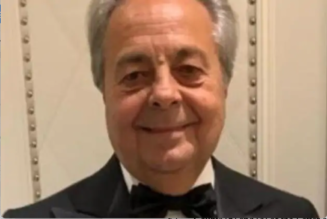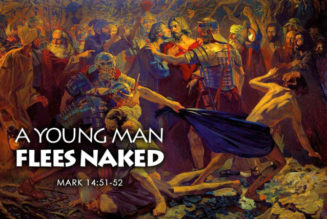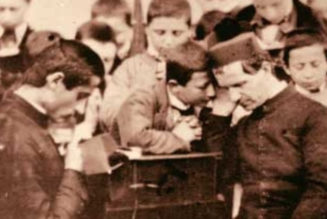By Phil Lawler ( bio – articles – email ) | Nov 17, 2023
After a month of Vatican insistence on listening to all perspectives, it is ironic, to say the least, that the next big news story was the removal of an American bishop, apparently for talking too much. But never mind the mixed messages. The ouster of Bishop Joseph Strickland could harm the cause of synodal government in another important way.
In its terse announcement of the bishop’s removal the Vatican did not explain why Bishop Strickland had to go. Such announcements from Rome never come with explanations. So when a bishop leaves before normal retirement age the faithful are left to wonder: did he jump or was he pushed? Was he forced to step down because of some serious disease, or because of the impending revelation of some serious misconduct? For reasons I cannot discern (is it a chronic aversion to transparency?) the Vatican does not distinguish between the prelates who have betrayed their trust and those who have simply fallen ill.
In the case of Bishop Strickland we do know that he was pushed, because he had announced beforehand that he would refuse a request for his resignation. But even he reports that he was not entirely clear on the reasons for the Vatican’s insistence that he must no longer lead the Diocese of Tyler, Texas. (More on that later.)
After the announcement, some of the bishop’s critics took the line that he was removed not for the obvious reason (his outspoken criticism of Pope Francis), but because of his poor record in diocesan management. That line was strengthened by the testimony of one voluble priest from Tyler, who claimed that many Texas Catholics were harmed by Strickland’s administrative deficiencies. But other complaints from the Tyler faithful were hard to find, while at least one loyal parishioner described the bishop’s removal as a gut punch.
True, Bishop Strickland does not have an MBA degree. But what do we expect from a bishop, really, in terms of diocesan management? The financial condition of the Tyler diocese is apparently sound. But a better measure of the bishop’s leadership would be the number of seminarians in the diocese. By that measure Bishop Strickland has been a great success; there are more young men from the little Diocese of Tyler studying for the priesthood than from some of America’s largest archdioceses. The bishop’s alleged deficiencies as an administrator evidently did not deter men from wanting to serve in his diocese.
But when Bishop Strickland discussed his removal with Raymond Arroyo on EWTN’s “The World Over” broadcast, he reported that administrative problems (real or imagined) did not figure in the Vatican’s case against him. He was removed, he says, because of “a lack of fraternity with my brother bishops.” In other words, he was not a team player.
Yes, Bishop Strickland was far more vocal than other American bishops. His controversial public comments—especially his involvement on social media, and his tendency to “like” posts that expressed even more controversial stands—undoubtedly made other bishops uncomfortable. His statements often seemed impulsive, impolitic, imprudent. Perhaps other bishops should have admonished him to be more circumspect. Probably some did, quietly. But at least according to Bishop Strickland, his relations with other American bishops always remained cordial.
Was he out of step with the body of bishops. Yes. But Bishop Strickland would insist that defending the faith is more important than staying in step. St. Athanasius was not a team player. The English bishops in the days of Henry VIII preserved their unity—all but St. John Fisher.
On rare occasions Popes John Paul II and Benedict XVI had removed bishops who broke ranks with the College of Bishops by questioning fundamental points of Catholic teaching. In this case it seems that Pope Francis removed Bishop Strickland because he was too clamorous in his defense of Catholic doctrine.
The Strickland case raises a serious question: What is appropriate behavior for a bishop who believes that Catholic doctrine is under attack? If he believes that the Bishop of Rome is endangering the faith? At the Council of Jerusalem, presumably the model of synodal government, St. Paul did not hesitate to confront St. Peter. If he believes that the Pope’s policies are misguided, a successor to the apostles has not just the right, but the obligation to speak out. If Bishop Strickland’s criticisms were off target, other bishops had the duty to say so. Is this not precisely the sort of open exchange that was so heartily endorsed at the Synod on Synodality?
Bishop Strickland, who has studied canon law, concedes that the Pope has the authority to remove him from his see. Other canonists disagree, arguing that a diocesan bishop can only be removed “for cause,” after a formal canonical procedure. The question obviously touches on the fundamental nature of papal authority vis-à-vis the college of bishops—which is to say, the nature of synodal government.
As I have observed in the past the Eastern churches take great pride in their synodal government:
Each independent Orthodox Church is governed by its own Synod of Bishops. The synods appoint new bishops, set ecclesiastical policies, and elect the patriarchs who serve as “first among equals” in governance. We know that this mode of governance is compatible with Catholicism, because the Eastern churches in full communion with Rome—the Ukrainian Catholics, Maronite Catholics, Syro-Malabar Catholics, etc.—have their own synods.
Now imagine how the Eastern churches—proud of their synods, zealous in their defense of orthodox tradition, and suspicious about papal primacy—look upon this case. A Roman Pontiff, exercising his own power without explanation or consultation, removed a bishop from office because he questioned the Pope’s leadership. This case is a setback both synodality and ecumenism.
Sound Off! CatholicCulture.org supporters weigh in.
All comments are moderated. To lighten our editing burden, only current donors are allowed to Sound Off. If you are a current donor, log in to see the comment form; otherwise please support our work, and Sound Off!









